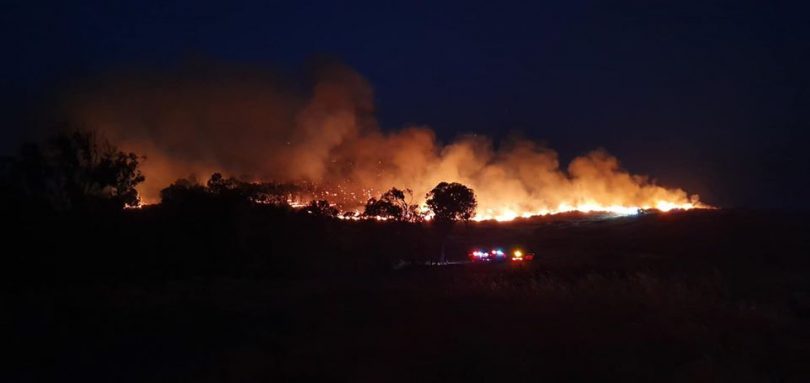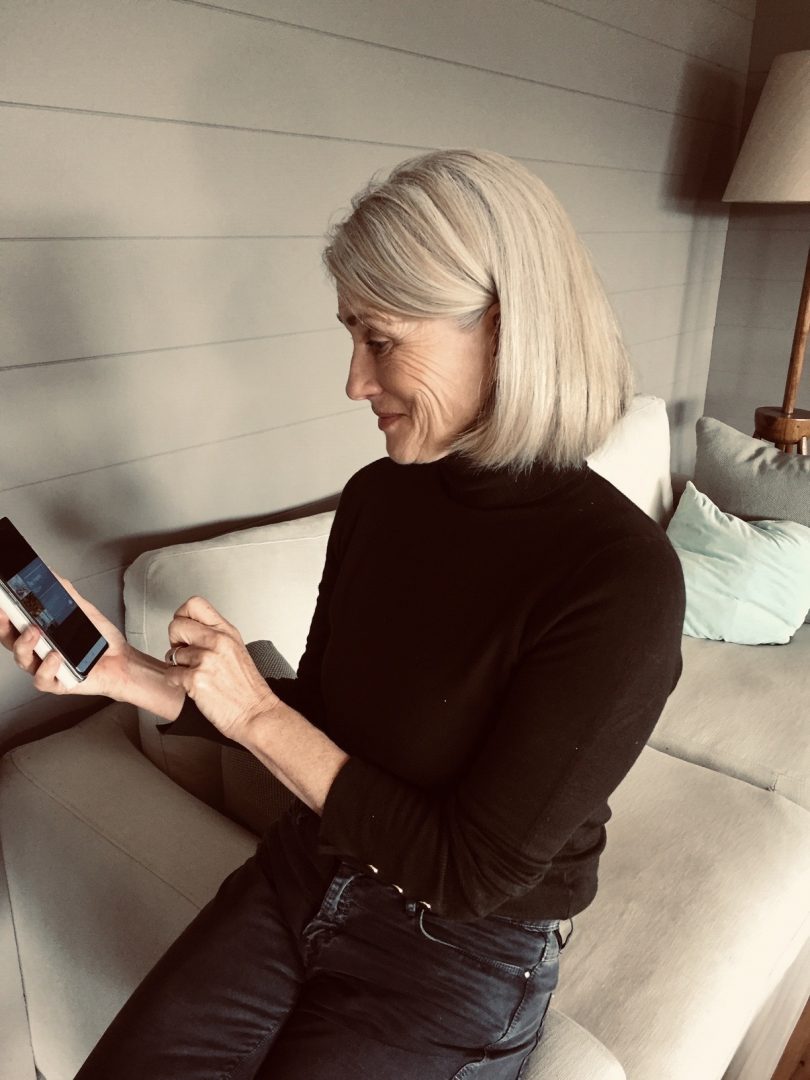
Residents of fire-affected Snowy Valleys can sign up to a free four-week mobile health and wellness program, Pa2health, which combines healthy eating with exercise, evidence-based psychology, mindfulness and stress management. Photo: Tumbarumba Bush Fire Brigade.
If you live in the Snowy Valleys local government area, you would be forgiven if you felt a bit wide-eyed and bushy tailed. It’s been quite a year there.
But help is on the horizon.
A program that’s had success in assisting people to get physically and mentally back on track in the fire-affected NSW southeast – and has the stats to prove it – is now being offered in the state’s southwest.
The normally subscription-only service is not only being offered free of charge to 300 residents of Snowy Valleys, but is kicking off again in the NSW southeast region.
All you need to participate is a computer, tablet or smartphone.
Pa2health is the name of the program – with the “Pa” at the beginning of the title standing for “pocket assistant” – and it has good street cred.
Devised by Ginny Stevens who, out of concern about the level of depression in rural communities, initiated the not-for-profit Active Farmers program in 2015 to improve the physical and mental health of farmers across rural Australia.

Author Judy Davie is a member of a panel of four experts who will deliver daily SMS messages to Pa2health program participants. Photo: Supplied.
Active Farmers has been so popular it’s proliferating across the nation, particularly in the NSW South West Slopes.
Pa2health appears to be on the same trajectory. Just 12 months into its life, the program reached the finals of the NSW Government’s Regional Pitchfest competition in 2019, which celebrates innovation in rural Australia.
It combines evidence-based psychology, healthy eating, exercise and stress and sleep management in a four-week program.
These were services Ginny knew were often unavailable or unaffordable to many regional Australians.
Using a panel of experts – author Judy Davie (healthy eating), Narelle Hunter (mindfulness), Alice Fitzpatrick (psychology) and Ed Stevens (technology) – the collaborative program ensures nobody in the rural community slips through the cracks when it comes to improving their wellbeing.
Judy says she knows that many people want to eat healthier but find it hard to do so when they are stressed and exhausted.
“We know when people eat better and exercise it can help reduce stress,” she says. “It made sense that people would get better results with combined knowledge.”
Guided relaxation practice, meal ideas, exercise programs for all ages and levels of fitness, and daily support are all delivered via daily SMS messages linking through to content on a chatbot.
After being accepted into the HCF Catalyst Accelerator tech program for startup businesses – a trial of the program with HCF staff – the team applied for community grant funding with the Murrumbidgee Primary Health Network and took 375 people through the program in September 2019.
“Back then, it was called a challenge,” says Judy. “We then received further community grant funding from SE NSW Primary Health Network (Coordinare) to deliver our program to 550 people in SE NSW, which first ran to 180 people in November 2019.”
The real test came after fires hit southeast NSW when the focus of Pa2health was tweaked from challenge to support for the 360 people who had signed up.
Judy says many people emerged from the fires still shocked and distressed.
“We knew people would benefit from stopping to take care of themselves and pay more attention to their lifestyle behaviours, and we knew that daily mindfulness practice would help to relieve stress and facilitate sleep, but we needed to use a gentle approach,” she explains.
The team asked people to “aim towards” a range of lifestyle behaviours.
“The language was subtle but it made a huge difference,” says Judy. “A private Facebook page offered people the chance to chat with each other and share their experiences of the fires and what they were doing towards self-care.”
It turned out to be their best program ever, says Judy.
“We got bigger results with smaller steps,” she says. “It was like participants were given permission, among all the terrible things that had happened, to be gentle to themselves.”
Built into the program is an assessment process where participants are asked – at the beginning and end – about their current levels of stress, anxiety and physical lifestyle behaviours.
As team psychologist, Alice works with the University of NSW to analyse the data.
To date, says Judy, the data of people who complete the program shows a statistically significant drop in levels of stress and anxiety, with improved lifestyle behaviours such as increased activity, increased consumption of fresh food and decreased consumption of junk food.
A private Facebook page allows the Pa2health team to stay connected to people after the program is finished. Some people are signing up again.
“It’s extremely encouraging and we’re very excited to be able to offer the program to a further 300 people in the Snowy Valleys,” says Judy.
The program has been made possible through ongoing federal Primary Health Network community grant funding which finances delivery to 300 residents in bushfire-affected regions of the Snowy Valleys local government area and a further 550 people in drought and bushfire-affected regions of southeast NSW.
The four-week wellbeing program starts on May 25 in both southeast NSW and Snowy Valleys. To sign up, head to the Pa2health website.







